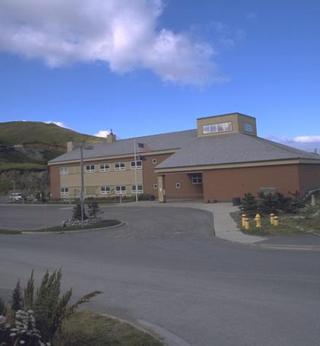City Council Nixes Controversial Property Rule

Wednesday, August 22 2012
For the past year, the city planning department has been trying to find ways to encourage development. They came up with a plan that would lower minimum lot sizes, so more people could subdivide land they already own. But the city also wanted to make sure they left room for utilities — power and cable lines, sewer runoff, drainage.
Unalaska already requires that landowners set aside a piece of their plots for utilities. That portion of land is called an easement. It can’t be built upon, and the city can access it as needed. The planning department always negotiates the exact size and location of the easements with landowners.
To make those negotiations more equal, and keep development uniform, the city planning department decided that everyone should start with 10 feet of easements, on all four sides of the property.
Through months of planning commission meetings and public hearings, landowners have fought that proposal. And at last night’s city council meeting, they finally got their way. City council voted 6-0 to scrap the 10-foot easements, and send the rest of the planning department’s proposals to a second hearing next month.
Before they reached that vote, council went through two rounds of debate and public comments. The discussion went on for an hour and a half.
Landowner Clint Huling told council that the city would have too much power relative to property owners during the platting process.
“You have these easements in place so when I come in with my subdivision and I have these lots laid out, now there’s an arbitrary easements around these lots," Huling said. "Now the negotiation switches to the other side: Now I’m coming in to negotiate to get my land back.”
Denise Rankin, property manager for the Ounalashka Corporation, told council that the ordinance might discourage OC from developing its property for housing.
"This proposed change may have OC re-looking at its future development plans," said Rankin. "Why re-subdivide for smaller lots for housing when we could have larger industrial lots that wouldn’t require easements all over?"
Council asked whether they could send the changes back to the planning commission, so they could come up with a new easement system that was less controversial for landowners. But Mayor Shirley Marquardt strongly discouraged them from doing so.
Councilor Dennis Robinson proposed an amendment that took the 10-foot easements out of the new code. Though councilor Zoya Johnson said the easement issue was ”overdramatized,” and councilor Zac Schasteen said he supported the 10-foot rule, they both voted to remove the new easements from the planning department’s proposal.
Council voted unanimously to send a different set of changes to the city code to a second reading next month. Those concern tideland leases, and would set the typical minimum lease term to 30 years, from the current standard of 20 years.
Council voted 6-0 to approve a $65,000 contract with Fox Lawson and Associates of Phoenix, Arizona, to perform a study of the pay scale and classification system for city employees. They also voted unanimously in favor of a 30-year tideland lease to Strong Holdings. They’ll sublease the land to Coastal Transportation, which will use it to expand their dock. Council authorized $300 in spending for a reception to welcome the Arctic Imperative Summit tour group when they visit Unalaska on August 31.
And at the beginning of the meeting, Marquardt swore in two new Unalaska police officers, Sean Perry and Charles Lee.




J.S. on Friday, August 24 2012:
Actually Mr. Schasteen was the only one out of 5 other Council members and the Planning Commission to bring up an alternative to the ordinance.
Duh? on Thursday, August 23 2012:
Classic City Council lipservice from Mr. Schasteen- "Yes I support this, but I'm voting against it." That's not really supporting anything, is it?